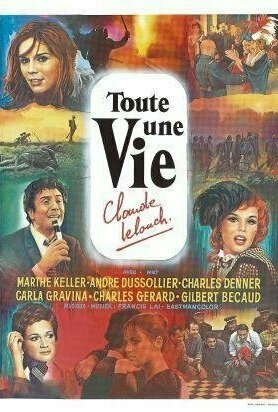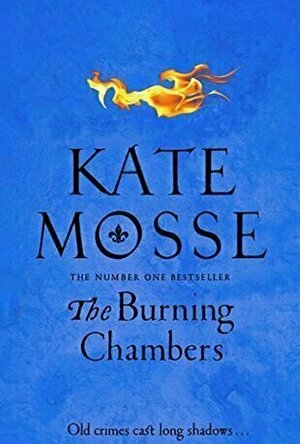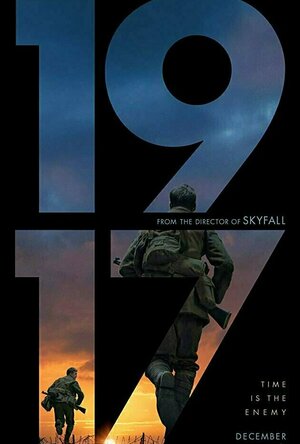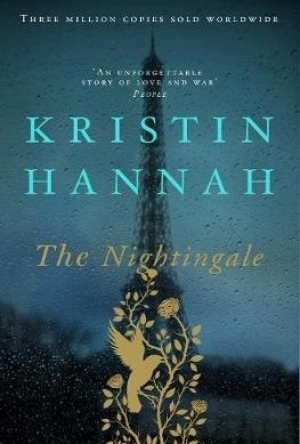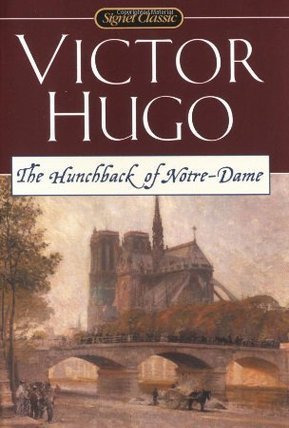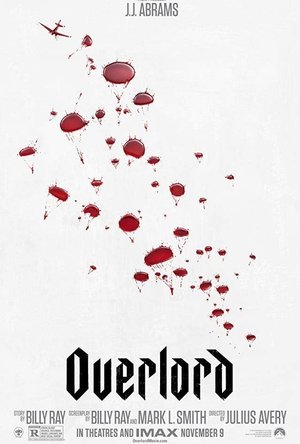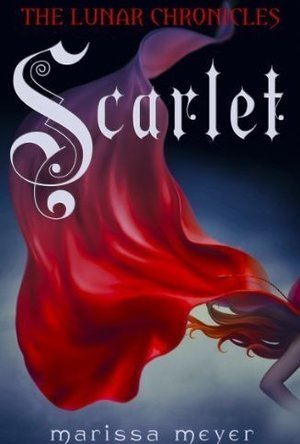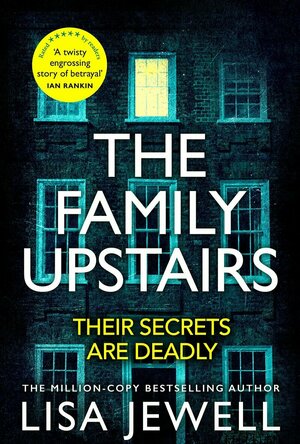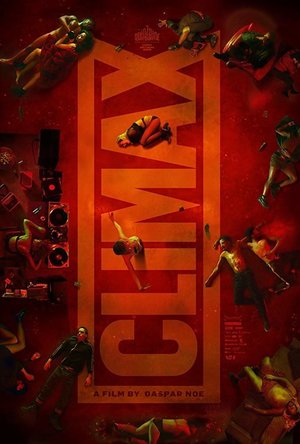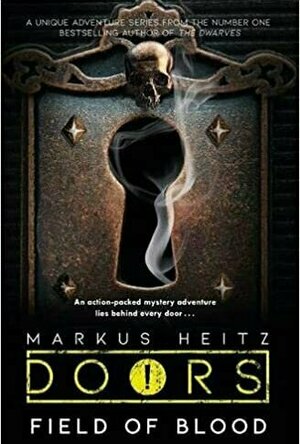Search
Search results
Matthew Weiner recommended And Now My Love (1974) in Movies (curated)
ClareR (5885 KP) rated The Burning Chambers (The Burning Chambers #1) in Books
Jan 26, 2021
This book is an immersive experience! I found myself drawn in to the world of 16th Century France - and to be fair, it was all pretty exciting stuff! Historical fiction is one of my favourite genres, one of my ‘go-to’s’, and this did not disappoint one bit. It’s a story of religion, conflict, ambition, with a bit of a love story thrown in for good measure.
It’s all history that I know little about - my history education being that of the carefully selected English type. I’ve always tried to find out more about European history (ahem, German degree) and further afield if I can, and historical fiction makes it a bit more interesting than a dry history book. This book taught me a lot about the tensions between the catholic majority, and the Huguenot minority.
Minou is the 19 year old daughter of a bookseller, and lives in Carcassonne with her family. She meets Piet, a Huguenot convert, and helps him to escape from the town. Later, in Toulouse, they meet again in far more dangerous circumstances. They become trapped in a city at war - Catholic against Huguenot - and someone that Piet believes is a friend is very far from that. In Puivert, the chatelaine of the castle has a secret that she wants to keep hidden, and the only way to do that is for her to find Minou.
First, the most obvious thing: this is one big book. It’s the kind of book that I would buy on my kindle, because at 600+ pages, it definitely won’t fit in my handbag! The Pigeonhole is great for these circumstances!
Secondly, although this book is a serious whopper, it didn’t feel that way when I was reading it. It’s an exciting, fast-paced, delight of a read. It has it all: action, history, romance. Everything that makes for a compulsive read! The heroes and heroines are good, and the villains are thoroughly bad, and I loved them all!
It’s all history that I know little about - my history education being that of the carefully selected English type. I’ve always tried to find out more about European history (ahem, German degree) and further afield if I can, and historical fiction makes it a bit more interesting than a dry history book. This book taught me a lot about the tensions between the catholic majority, and the Huguenot minority.
Minou is the 19 year old daughter of a bookseller, and lives in Carcassonne with her family. She meets Piet, a Huguenot convert, and helps him to escape from the town. Later, in Toulouse, they meet again in far more dangerous circumstances. They become trapped in a city at war - Catholic against Huguenot - and someone that Piet believes is a friend is very far from that. In Puivert, the chatelaine of the castle has a secret that she wants to keep hidden, and the only way to do that is for her to find Minou.
First, the most obvious thing: this is one big book. It’s the kind of book that I would buy on my kindle, because at 600+ pages, it definitely won’t fit in my handbag! The Pigeonhole is great for these circumstances!
Secondly, although this book is a serious whopper, it didn’t feel that way when I was reading it. It’s an exciting, fast-paced, delight of a read. It has it all: action, history, romance. Everything that makes for a compulsive read! The heroes and heroines are good, and the villains are thoroughly bad, and I loved them all!
LeftSideCut (3776 KP) rated 1917 (2020) in Movies
Aug 16, 2020
1917 is a remarkable film through and through, and I can't praise it enough.
The cast, the cinematography, the set pieces, the music score are all outstanding.
The plot revolves around Lance Corporals Schofield (George McKay) and Blake (Dean-Charles Chapman) embarking on a seemingly impossible mission across no man's land in Northern France, deep into enemy territory to deliver a message to a fellow regiment, with the aim of preventing them from walking into a trap and potentially losing 1600 soldiers.
The two lead actors are fantastic, portraying two soldiers leaning on each other to achieve their goal.
The journey that takes place is tough and harrowing at times. There's a point about half way through the movie where the pace just doesn't slow down once. It's extremely intense, and bolstered infinitely by the shooting style.
The film is shot in a way that gives the viewer the impression of a one take movie. It's edited together so well that it appears seamless, and allows for some truly breathtaking moments, and never lets you break away from events unfolding. It caught my attention immediately and never lost it for one second.
This method allows for a very stylish looking experience, but it's a kind of style that never detracts or takes away from the horror of war. It's a perfect combination, ensuring that scenes of action feel relentless, whilst sadder moments are suitably poignant and perfectly executed. The emotional beats in 1917 are something else and took me by surprise. I have no shame in saying that I was fighting back tears a couple of times.
By the times the credits rolled, I was just sat in stunned silence, something that has only happened to me a few times before when it comes to movies.
1917 is pretty much perfect. A great war film, a great drama, and en effective exploration of what friendship and duty really mean.
Make the time to watch it if you haven't already!
The cast, the cinematography, the set pieces, the music score are all outstanding.
The plot revolves around Lance Corporals Schofield (George McKay) and Blake (Dean-Charles Chapman) embarking on a seemingly impossible mission across no man's land in Northern France, deep into enemy territory to deliver a message to a fellow regiment, with the aim of preventing them from walking into a trap and potentially losing 1600 soldiers.
The two lead actors are fantastic, portraying two soldiers leaning on each other to achieve their goal.
The journey that takes place is tough and harrowing at times. There's a point about half way through the movie where the pace just doesn't slow down once. It's extremely intense, and bolstered infinitely by the shooting style.
The film is shot in a way that gives the viewer the impression of a one take movie. It's edited together so well that it appears seamless, and allows for some truly breathtaking moments, and never lets you break away from events unfolding. It caught my attention immediately and never lost it for one second.
This method allows for a very stylish looking experience, but it's a kind of style that never detracts or takes away from the horror of war. It's a perfect combination, ensuring that scenes of action feel relentless, whilst sadder moments are suitably poignant and perfectly executed. The emotional beats in 1917 are something else and took me by surprise. I have no shame in saying that I was fighting back tears a couple of times.
By the times the credits rolled, I was just sat in stunned silence, something that has only happened to me a few times before when it comes to movies.
1917 is pretty much perfect. A great war film, a great drama, and en effective exploration of what friendship and duty really mean.
Make the time to watch it if you haven't already!
Kristy H (1252 KP) rated The Nightingale in Books
Aug 12, 2021
A touching portrayal of family and love during wartime
In 1930s France, Vianne says goodbye to her husband, Antoine, as he leaves to fight in the War. She's left behind to care for their daughter Sophie. Her younger sister, Isabelle, is in Paris with their father when the war starts. Reckless and impulsive, Isabelle wants to fight for her country, but their father sends her to stay with Vianne. But soon, after being betrayed by the young man who helped her find her way to Vianne's home, Isabelle is fighting for the Resistance. As for Vianne, she finds herself forced to house Nazi soldiers and make horrible sacrifices to protect her family.
This was an excellent and informational portrayal of World War II. It's haunting and heartbreaking and hopeful all together. Hannah tells the story of the War through our two sisters--looking at how they approach the war, along with their father. Vianne is the practical older sister, who worries for her safety and that of her daughter. Meanwhile, Isabelle has felt betrayed most of her life after the death of their mother and perceived abandonment by her older sister and father. This feeling spurs her to join the Resistance. Following their different paths allows us to see many varied sides of this awful and terrifying War. As you form attachments to the characters, the snatching of Jewish families and children and the concentration camps become even more stark and brutal--it's horrifying.
While I cannot really know what happened during this time period, this book seemed realistic and authentic to me. It made me cry. It's sad and yet somehow sweet at times. It's a vivid look at loss and love--for sisters, family, and your country.
I read this book as part of my new reading project--choosing books off my shelves based on their Goodreads rankings. This is my first book of the project, forcing me out of my comfort zone and to try books in genres I don't usually read!
This was an excellent and informational portrayal of World War II. It's haunting and heartbreaking and hopeful all together. Hannah tells the story of the War through our two sisters--looking at how they approach the war, along with their father. Vianne is the practical older sister, who worries for her safety and that of her daughter. Meanwhile, Isabelle has felt betrayed most of her life after the death of their mother and perceived abandonment by her older sister and father. This feeling spurs her to join the Resistance. Following their different paths allows us to see many varied sides of this awful and terrifying War. As you form attachments to the characters, the snatching of Jewish families and children and the concentration camps become even more stark and brutal--it's horrifying.
While I cannot really know what happened during this time period, this book seemed realistic and authentic to me. It made me cry. It's sad and yet somehow sweet at times. It's a vivid look at loss and love--for sisters, family, and your country.
I read this book as part of my new reading project--choosing books off my shelves based on their Goodreads rankings. This is my first book of the project, forcing me out of my comfort zone and to try books in genres I don't usually read!
The Bandersnatch (199 KP) rated The Hunchback of Notre-Dame in Books
Nov 7, 2019
The Hunchback of Notre Dame is set in 1829's Paris, France where the gypsy Esmeralda (Born Agnes) captures the hearts of several men including captain Phoebus and Pierre Gringoire but especially Quasimodo the bell ringer and his guardian the Archdeacon Claude Frollo.
Frollo orders Quasimodo to bring Esmeralda to him and after a lot of chaos where the guards under Phoebus capture Quasimodo, Gringoire is knocked out and only rescued from hanging when Esmeralda saves him with promise of marriage and Quasimodo flogged and placed on a pillory for several hours of public exposure. When Esmeralda is accused of attempted murder Quasimodo helps by giving her space in the cathedral of Notre Dame under law of sanctuary. Frollo finds out that the court of parliament has voted the removal of Esmeralda's right for sanctuary and orders her to be taken and killed. Clopin the head of the gypsies hears this and leads a rescue party to help Esmeralda. During the chaos Quasimodo mistakes who is wanting to help the Gypsy he loves and ends up in aiding in her arrest. Frollo after failing to win her love betrays Esmeralda and sends her to be hung. Frollo laughs as Esmeralda dies and is pushed from the top of the Cathedral by Quasimodo. Quasimodo dies of starvation after joining Esmeralda's body in the cemetery.
Victor Hugo began writing the book in 1829The novels original title was Notre Dame de Paris, it was largely to make his contemporaries more aware of the value of the Gothic architecture, Notre Dame Cathedral had been in disrepair at the time and along with other buildings which were neglected and often destroyed to be replaced by new buildings or defaced by replacement of parts of buildings in a newer style. During the summer of 1830 Gosselin demanded that Hugo complete the book by February 1831, Hugo -starting in September 1830- worked non stop on the book finishing it six months later. Several ballets, comics, TV show, theatre, music, musical theatre and films have been inspired by The Hunchback of Notre Dame most notably has been the 1996 Walt Disney animated movie of the same name.
I think that The Hunchback of Notre Dame is a very prolific book which promotes the fact that it doesn't matter what you look like on the outside, its how you deal with people and what is on the inside that counts. The books portrayal of the romantic era as an extreme through the architecture, passion and religion as well as the exploration of determinism, revolution and social strife adds to the ultimately magical make up of the book. I believe that most people would see themselves in the position of Quasimodo, Esmeralda and Phoebus rather than that of Frollo. I know I certainly wouldn't see myself otherwise.
Victor Marie Hugo was born on February 26th 1802 in Besançon. eastern Franche-Combe as the third son of Joseph Leopold Sigisbert Hugo (1774-1828) and Sophie Trebuchet (1772-1821). Victor was a French poet, novelist and dramatist of the romantic movement, he's also considered one of the greatest and best known French writers. Victors childhood was a period of national political turmoil with Napoleon being proclaimed Emperor two years after he was born and the Bourbon monarchy was restored before his 13th birthday. His parents held vastly different political and religious views which prompted a brief separation in 1803, during that time Hugo's mother dominated his education and upbringing. Hugos work reflected her devotion to king and faith. However during the events leading up to France's 1848 revolution, Hugos work changed to that of Republicanism and free thought. Hugo went on to married to his childhood sweetheart Adele Foucher in 1822 and they had five children.
Victor Hugo's works hold a vast collection of poetry, novels and music. His first Novel Han D'Islande was published in 1823 and he published five volumes of poetry between 1829 and 1840 which cemented his reputation as a great elagiac and lyric poet. Hugos first mature work of fiction was published in February 1829 by Charles Gosselin without his name attached, this would infuse with his later work Le Dernier Jour d'un Condamne (The last day of a Condemned man) and go on to not only influence other writers including Charles Dickens and Albert Camus, and be a precursor to Hugo's work Les Miserables published in 1862.
After three attempts Hugo was finally elected to Academie francaise in 1841and in 1845 King Louis-Phillipe elevated him to the peerage and in 1848 he was elected to the national assembly of the second republic. When Louis Napoleon the 3rd seized power in 1851 Hugo openly declared him a traitor to France then relocated to Brussels, Jersey (where he was thrown out of for supporting a paper criticising Queen Victoria) and ending up in guernsey where he remained an exile until 1870. after returning to France a hero in 1870 Hugo spent the rest of his life writing and just living and died from pneumonia on may 22nd 1885 at the age of 83. He was given a state funeral by degree of president Jules Grevy, more than two million people joined his funeral procession in Paris which went form the Arc Du Triomphe to the Pantheon where he was consequently buried, he shared a crypt with Alexandre Dumas and Emile Zola. Most French towns and cities have streets named after him.
Victor Hugo in my opinion is one of those naturally born creative souls who had felt compelled to both write and at least try to make the world a better place. He definitely attempted to do so from the positions he accumulated in his life time and despite this the three mistresses he had in his later years definitely shows that his love life left something to be desired.
And there you have it a book for all the ages, its definitely under the banner of AWESOME!!!.
Frollo orders Quasimodo to bring Esmeralda to him and after a lot of chaos where the guards under Phoebus capture Quasimodo, Gringoire is knocked out and only rescued from hanging when Esmeralda saves him with promise of marriage and Quasimodo flogged and placed on a pillory for several hours of public exposure. When Esmeralda is accused of attempted murder Quasimodo helps by giving her space in the cathedral of Notre Dame under law of sanctuary. Frollo finds out that the court of parliament has voted the removal of Esmeralda's right for sanctuary and orders her to be taken and killed. Clopin the head of the gypsies hears this and leads a rescue party to help Esmeralda. During the chaos Quasimodo mistakes who is wanting to help the Gypsy he loves and ends up in aiding in her arrest. Frollo after failing to win her love betrays Esmeralda and sends her to be hung. Frollo laughs as Esmeralda dies and is pushed from the top of the Cathedral by Quasimodo. Quasimodo dies of starvation after joining Esmeralda's body in the cemetery.
Victor Hugo began writing the book in 1829The novels original title was Notre Dame de Paris, it was largely to make his contemporaries more aware of the value of the Gothic architecture, Notre Dame Cathedral had been in disrepair at the time and along with other buildings which were neglected and often destroyed to be replaced by new buildings or defaced by replacement of parts of buildings in a newer style. During the summer of 1830 Gosselin demanded that Hugo complete the book by February 1831, Hugo -starting in September 1830- worked non stop on the book finishing it six months later. Several ballets, comics, TV show, theatre, music, musical theatre and films have been inspired by The Hunchback of Notre Dame most notably has been the 1996 Walt Disney animated movie of the same name.
I think that The Hunchback of Notre Dame is a very prolific book which promotes the fact that it doesn't matter what you look like on the outside, its how you deal with people and what is on the inside that counts. The books portrayal of the romantic era as an extreme through the architecture, passion and religion as well as the exploration of determinism, revolution and social strife adds to the ultimately magical make up of the book. I believe that most people would see themselves in the position of Quasimodo, Esmeralda and Phoebus rather than that of Frollo. I know I certainly wouldn't see myself otherwise.
Victor Marie Hugo was born on February 26th 1802 in Besançon. eastern Franche-Combe as the third son of Joseph Leopold Sigisbert Hugo (1774-1828) and Sophie Trebuchet (1772-1821). Victor was a French poet, novelist and dramatist of the romantic movement, he's also considered one of the greatest and best known French writers. Victors childhood was a period of national political turmoil with Napoleon being proclaimed Emperor two years after he was born and the Bourbon monarchy was restored before his 13th birthday. His parents held vastly different political and religious views which prompted a brief separation in 1803, during that time Hugo's mother dominated his education and upbringing. Hugos work reflected her devotion to king and faith. However during the events leading up to France's 1848 revolution, Hugos work changed to that of Republicanism and free thought. Hugo went on to married to his childhood sweetheart Adele Foucher in 1822 and they had five children.
Victor Hugo's works hold a vast collection of poetry, novels and music. His first Novel Han D'Islande was published in 1823 and he published five volumes of poetry between 1829 and 1840 which cemented his reputation as a great elagiac and lyric poet. Hugos first mature work of fiction was published in February 1829 by Charles Gosselin without his name attached, this would infuse with his later work Le Dernier Jour d'un Condamne (The last day of a Condemned man) and go on to not only influence other writers including Charles Dickens and Albert Camus, and be a precursor to Hugo's work Les Miserables published in 1862.
After three attempts Hugo was finally elected to Academie francaise in 1841and in 1845 King Louis-Phillipe elevated him to the peerage and in 1848 he was elected to the national assembly of the second republic. When Louis Napoleon the 3rd seized power in 1851 Hugo openly declared him a traitor to France then relocated to Brussels, Jersey (where he was thrown out of for supporting a paper criticising Queen Victoria) and ending up in guernsey where he remained an exile until 1870. after returning to France a hero in 1870 Hugo spent the rest of his life writing and just living and died from pneumonia on may 22nd 1885 at the age of 83. He was given a state funeral by degree of president Jules Grevy, more than two million people joined his funeral procession in Paris which went form the Arc Du Triomphe to the Pantheon where he was consequently buried, he shared a crypt with Alexandre Dumas and Emile Zola. Most French towns and cities have streets named after him.
Victor Hugo in my opinion is one of those naturally born creative souls who had felt compelled to both write and at least try to make the world a better place. He definitely attempted to do so from the positions he accumulated in his life time and despite this the three mistresses he had in his later years definitely shows that his love life left something to be desired.
And there you have it a book for all the ages, its definitely under the banner of AWESOME!!!.
Gareth von Kallenbach (980 KP) rated Overlord (2018) in Movies
Jul 2, 2019
June 6, 1944 is the day known around the world as D-Day. This historic day marks the massive invasion of France by the allied forces in an effort to regain the country from the hands of Germany and push back the mighty German war machine all the way to Berlin. There have been many movies, books, and even videogames about the invasion over the years, so even the biggest war buffs might be wondering…really, they made yet another movie about D-Day? Well, the movie Overlord is quite a bit different from anything we have even seen previously. This movie is still about Operation Overlord but does not focus on the amphibious assault and instead shows us the missions leading up to it. Still not unique enough for you? Well, in Overlord we have all the battles, weaponry and Nazis of an excellent war film but in true J.J. Abrams fashion we now also have ZOMBIES!
Overlord focuses on a small unit tasked to take out a radio tower atop a church in a small village in France. The unit led by Corporal Ford (Wyatt Russell) and comprised of fresh out of paratrooper training Privates Boyce (Jovan Adepo), Rosenfeld (Dominic Applewhite) and Tibbet (John Magaro) are the only survivors of the doomed mission, but understand that if they do not complete it, then the allied invasion will be without crucial air support. During their trek to the church they meet a young French woman from the village named Chloe (Mathilde Ollivier) who offers to accompany them and assist in taking out the radio tower.
When the ragtag team reach the village, it immediately becomes apparent that everything is not as it should be. They go to Chloe’s house to formulate their plan and are greeted by howling and grunting coming from a closed door down the hallway. Chloe states that her aunt also lives in the house and is very “sick” after being taken to the church by a German soldier. At the same time, through a series of unfortunate events, Private Boyce discovers a brutal laboratory where other villagers are also being made “sick”.
For those who have seen the preview of Overlord and expect it to be war-based horror movie may be a little disappointed. While there certainly are horrific events, and plenty of scenes fighting the undead, Overlord is much more about the atrocities that the Nazi regime inflicted on innocents in an effort to purse the 1000-year-old Reich. J.J. Abrams spins a tale about how a small group of dedicated soldiers can pull out the impossible, even when there are hordes of Nazi soldiers and undead monsters standing in their way and does this in a spectacular and very believable way. The movie seems far more realistic than it should considering we are talking about zombie soldiers, but the events unfold as if they could actually happen. The movie is less The Walking Dead and more Saving Private Ryan, focusing not so much on the undead creatures themselves, but more the experimentation and mad-scientist efforts to create the ultimate super soldier. The story was outstanding and how they depicted everything from the soldiers to the zombies was top notch.
The movie is beautifully shot, standing tall next to other war epics such as Saving Private Ryan or Dunkirk. Even though the main plot of the film isn’t the invasion itself, it goes to astonishing detail to show how massive the invasion truly was. The opening scene is both epic and terrifying and the horrors of war are explored throughout. The acting was also superb, leading you to immediately care about the team and root for their success in the mission.
If it is not already clear, I absolutely loved this movie! They did a masterful job of blending the war/horror genre in such a way, that it never overly feels like one versus the other. It’s an action packed, edge of your seat thriller, with just enough jump scares included to remind you that it is billed as a horror movie. Overlord is a very unique take on an unfortunate time in history and it is one of the best movies I’ve seen in 2018.
Overlord focuses on a small unit tasked to take out a radio tower atop a church in a small village in France. The unit led by Corporal Ford (Wyatt Russell) and comprised of fresh out of paratrooper training Privates Boyce (Jovan Adepo), Rosenfeld (Dominic Applewhite) and Tibbet (John Magaro) are the only survivors of the doomed mission, but understand that if they do not complete it, then the allied invasion will be without crucial air support. During their trek to the church they meet a young French woman from the village named Chloe (Mathilde Ollivier) who offers to accompany them and assist in taking out the radio tower.
When the ragtag team reach the village, it immediately becomes apparent that everything is not as it should be. They go to Chloe’s house to formulate their plan and are greeted by howling and grunting coming from a closed door down the hallway. Chloe states that her aunt also lives in the house and is very “sick” after being taken to the church by a German soldier. At the same time, through a series of unfortunate events, Private Boyce discovers a brutal laboratory where other villagers are also being made “sick”.
For those who have seen the preview of Overlord and expect it to be war-based horror movie may be a little disappointed. While there certainly are horrific events, and plenty of scenes fighting the undead, Overlord is much more about the atrocities that the Nazi regime inflicted on innocents in an effort to purse the 1000-year-old Reich. J.J. Abrams spins a tale about how a small group of dedicated soldiers can pull out the impossible, even when there are hordes of Nazi soldiers and undead monsters standing in their way and does this in a spectacular and very believable way. The movie seems far more realistic than it should considering we are talking about zombie soldiers, but the events unfold as if they could actually happen. The movie is less The Walking Dead and more Saving Private Ryan, focusing not so much on the undead creatures themselves, but more the experimentation and mad-scientist efforts to create the ultimate super soldier. The story was outstanding and how they depicted everything from the soldiers to the zombies was top notch.
The movie is beautifully shot, standing tall next to other war epics such as Saving Private Ryan or Dunkirk. Even though the main plot of the film isn’t the invasion itself, it goes to astonishing detail to show how massive the invasion truly was. The opening scene is both epic and terrifying and the horrors of war are explored throughout. The acting was also superb, leading you to immediately care about the team and root for their success in the mission.
If it is not already clear, I absolutely loved this movie! They did a masterful job of blending the war/horror genre in such a way, that it never overly feels like one versus the other. It’s an action packed, edge of your seat thriller, with just enough jump scares included to remind you that it is billed as a horror movie. Overlord is a very unique take on an unfortunate time in history and it is one of the best movies I’ve seen in 2018.
postapocalypticplayground (27 KP) rated Scarlet (The Lunar Chronicles, #2) in Books
Mar 15, 2018
Awesome continuation of the series
I’m so happy to be back in the world of the Lunar Chronicles! Scarlet, is Marissa Meyer’s take on Red Riding Hood, big bad wolf and grandma included. As with Cinder, Scarlet is a whirlwind of a story, straight into the good stuff and the story blends seamlessly with the continuation of Cinder’s overarching story line. Scarlet is a girl on a mission to rescue her Grandmother with Wolf (the big bad fighter) on her side. Outside of New Beijing, Scarlet’s story is set in a future France, which seems very undamaged by the wars, it has a very rustic feel, with Scarlet and her Grandmother enjoying a simple farming life. But Grandma, what big secrets you have! The collision of her grandmothers disappearance and the entrance of Wolf is played to perfection and their journey to Paris is both exciting and full of anxious moments. Scarlet is a fantastic character and you can completely understand, through the brief glimpses of her father, why she gives up everthing to take the journey to Paris. Whilst she wants to appear worldly, she is also wonderfully niaive at times, very much wearing her heart on her sleeve. I also loved the nuggets of information about hers and Cinder’s past and how the lines become blurred at times as the secrets and lies unfurl.
The action is frequent with huge set pieces which played out cinematically in my mind as I was reading. It’s quite an emotional one at times too, Kai’s dispair, Cinder’s desperation, Wolf’s inner turmoil and a bit of an insight into Levana left me quite breathless by the end.
My favourite thing at this stage, is how there is still so many secrets to be revealed. With 2 more books in the series to go it’s clear that each of the next characters will have some connection to what happened to Cinder as a child and how we reach present day, in story terms, I can’t wait to pick up Cress and see where the story goes next!
The action is frequent with huge set pieces which played out cinematically in my mind as I was reading. It’s quite an emotional one at times too, Kai’s dispair, Cinder’s desperation, Wolf’s inner turmoil and a bit of an insight into Levana left me quite breathless by the end.
My favourite thing at this stage, is how there is still so many secrets to be revealed. With 2 more books in the series to go it’s clear that each of the next characters will have some connection to what happened to Cinder as a child and how we reach present day, in story terms, I can’t wait to pick up Cress and see where the story goes next!
Kristy H (1252 KP) rated The Family Upstairs in Books
Oct 24, 2019
Twenty-five years ago, a tragedy occurred at the large house at 16 Cheyne Walk. When the police arrived, they found three dead adults, an apparent suicide note, and, upstairs, a healthy ten-month-old baby. The neighbors spoke of other children who lived in the house, but there was no trace of them. The house is left in trust, and twenty-five years later, Libby Jones receives the letter she's been waiting for. In it, she learns about her birth parents and that she's inherited their home on Cheyne Walk: making her an instant millionaire. But others have been waiting for this day for years, too, and now Libby is about to learn more about her past and what happened so long ago at Cheyne Walk.
"Now she owns a house in Chelsea and the proportions of her existence have been blown apart."
In typical Lisa Jewell fashion, The Family Upstairs is a dark and twisted story of family secrets, and betrayal. It's told from the perspective of Libby, who inherits the house; Lucy, a mother in France struggling to find shelter and safety for herself and her two children; and Henry, who tells his story from the past, when he lived at Cheyne Walk.
As their three stories intertwine, we learn more about the horrors that happened at the house all those years ago, and how exactly Libby, Lucy, and Henry are tied together. It's an enthralling story and not easy to put down. It's dark, with plenty of twists and turns, and it certainly kept me guessing. There's lots of wondering who is who, and lots of awful things that happen to people. There were a lot of surprises at every turn. I was drawn to Libby, along with Lucy and her children, even if I sometimes wasn't sure if everyone was making the right decisions.
I was really into this book until the end, where the vagueness of the ending disappointed me a bit. But it's still an interesting thriller, no matter what: lots to keep you entertained, tons of dark and twisted bits, and plenty that kept me wondering right up to the end. 4 stars.
"Now she owns a house in Chelsea and the proportions of her existence have been blown apart."
In typical Lisa Jewell fashion, The Family Upstairs is a dark and twisted story of family secrets, and betrayal. It's told from the perspective of Libby, who inherits the house; Lucy, a mother in France struggling to find shelter and safety for herself and her two children; and Henry, who tells his story from the past, when he lived at Cheyne Walk.
As their three stories intertwine, we learn more about the horrors that happened at the house all those years ago, and how exactly Libby, Lucy, and Henry are tied together. It's an enthralling story and not easy to put down. It's dark, with plenty of twists and turns, and it certainly kept me guessing. There's lots of wondering who is who, and lots of awful things that happen to people. There were a lot of surprises at every turn. I was drawn to Libby, along with Lucy and her children, even if I sometimes wasn't sure if everyone was making the right decisions.
I was really into this book until the end, where the vagueness of the ending disappointed me a bit. But it's still an interesting thriller, no matter what: lots to keep you entertained, tons of dark and twisted bits, and plenty that kept me wondering right up to the end. 4 stars.
Leigh J (71 KP) rated Climax (2018) in Movies
Nov 8, 2019 (Updated Nov 8, 2019)
Anti-climatic...
Contains spoilers, click to show
I went into Climax very excited. It's a film by Gaspar Noe (Irreversible, Into The Void) so I thought I was in for a trippy treat. And at first, the Movie definitely delivers on the visual stimulation and build up... but it falls flat, quickly.
Climax is about a group of Dancers who are preparing for competing abroad representing France. Their Choreography session goes well (as we get to see, that part is amazing and all done in 1 TAKE!) and everybody is pumped and ready for the Party after their Dance session. Little do they know, the Sangria has been spiked with LSD, and they only find out when they start tripping. Soon enough accusations fly about who in the group could have done this to them and are they going to be able to survive the night through this terrible trip...
Climax is definitely a Gaspar Noe film. It has his signature look, Camera work that makes you feel right there (and tripping your balls off) with them and a great Cast. But that's all the Movie really has to offer. Climax is a pretty strong storyline that Gaspar could have made really shocking and hellish... but it just stops and starts before disintegrating almost to nothing. The beginning Dance is amazing, the Movie then starts to splutter when the Dancers start to have general Gossipy conversation between themselves. It then starts gaining some momentum back when they realize they're all on LSD and some quite shocking altercations happen (a Woman accidentally sets herself on fire, another unknowingly beats and kicks a Pregnant member of the group... just to name a few) but then it's basically an hour of people flailing around on the floor, or against a wall. That's literally it.
I REALLY wanted to love Climax, but it just falls so flat that by the end of the Movie, I'm yawning and checking the time, feeling like it's been on for hours. Climax? More like Anti-Climax...
Climax is about a group of Dancers who are preparing for competing abroad representing France. Their Choreography session goes well (as we get to see, that part is amazing and all done in 1 TAKE!) and everybody is pumped and ready for the Party after their Dance session. Little do they know, the Sangria has been spiked with LSD, and they only find out when they start tripping. Soon enough accusations fly about who in the group could have done this to them and are they going to be able to survive the night through this terrible trip...
Climax is definitely a Gaspar Noe film. It has his signature look, Camera work that makes you feel right there (and tripping your balls off) with them and a great Cast. But that's all the Movie really has to offer. Climax is a pretty strong storyline that Gaspar could have made really shocking and hellish... but it just stops and starts before disintegrating almost to nothing. The beginning Dance is amazing, the Movie then starts to splutter when the Dancers start to have general Gossipy conversation between themselves. It then starts gaining some momentum back when they realize they're all on LSD and some quite shocking altercations happen (a Woman accidentally sets herself on fire, another unknowingly beats and kicks a Pregnant member of the group... just to name a few) but then it's basically an hour of people flailing around on the floor, or against a wall. That's literally it.
I REALLY wanted to love Climax, but it just falls so flat that by the end of the Movie, I'm yawning and checking the time, feeling like it's been on for hours. Climax? More like Anti-Climax...
Ross (3284 KP) rated Doors: Field of Blood in Books
Apr 8, 2021
Finally at an end
This the third and final book in this set (though they aren't to be read in any specific order) was consistent with the first two books. The beginning, shared, quarter sets up an intriguing tale of a group of disparate experts tasked with rescuing the missing daughter of a rich businessman, who has disappeared after going through a mysterious door.
This book sees the group enter a door that takes them to an alternate version of middle-ages France/Germany and the reign of the Frankian empire. As with the World War II element of the second book, this was more or less a passing interest to the book rather than a key element of the story.
The group have found themselves in a version of history where women rule the empire and generally take positions of power, and a building conspiracy among men seeks to reverse this and look to change this in the history books. For me, this was the most interesting aspect of the book, and one that could be plausible. Sadly, I couldn't see past some modern day people apparently conversing comfortably with people from the 9th century without issue, and there being no attempt to address this at all.
Meanwhile in the real world, we learn more about the doors, their use and the mysterious agency controlling them. We learn more in this one book than the other two put together, and between the three we now have a good amount of knowledge about these portals. Some aspects of their use don't add up though, as with any sort of time travel/portal notion.
The book ends fairly abruptly with a long voyage which is skipped over in a very 'sod it, that's the word count reached, wrap it up' style.
Overall, I was very disappointed with these books. While I liked having to piece together things from each book and start to get a feel for the world, I felt so much of it fell short. As with the other two books, it offered so much promise but fell flat.
This book sees the group enter a door that takes them to an alternate version of middle-ages France/Germany and the reign of the Frankian empire. As with the World War II element of the second book, this was more or less a passing interest to the book rather than a key element of the story.
The group have found themselves in a version of history where women rule the empire and generally take positions of power, and a building conspiracy among men seeks to reverse this and look to change this in the history books. For me, this was the most interesting aspect of the book, and one that could be plausible. Sadly, I couldn't see past some modern day people apparently conversing comfortably with people from the 9th century without issue, and there being no attempt to address this at all.
Meanwhile in the real world, we learn more about the doors, their use and the mysterious agency controlling them. We learn more in this one book than the other two put together, and between the three we now have a good amount of knowledge about these portals. Some aspects of their use don't add up though, as with any sort of time travel/portal notion.
The book ends fairly abruptly with a long voyage which is skipped over in a very 'sod it, that's the word count reached, wrap it up' style.
Overall, I was very disappointed with these books. While I liked having to piece together things from each book and start to get a feel for the world, I felt so much of it fell short. As with the other two books, it offered so much promise but fell flat.
